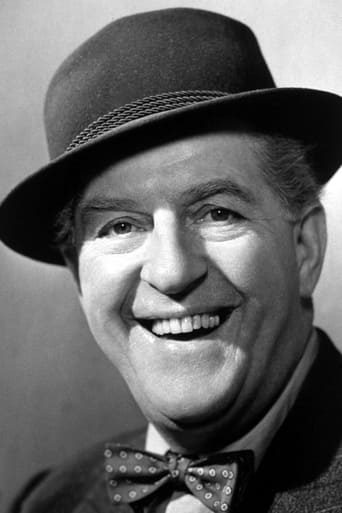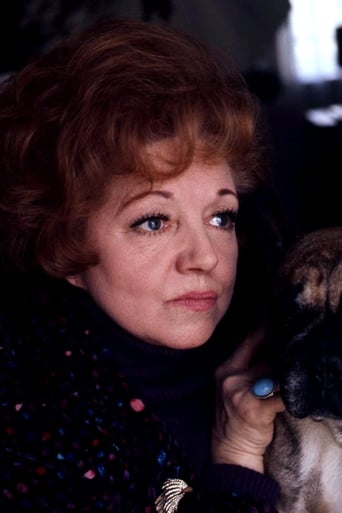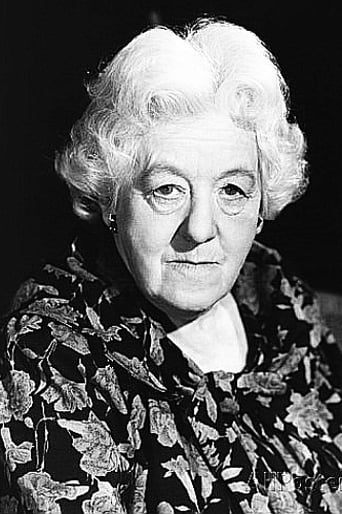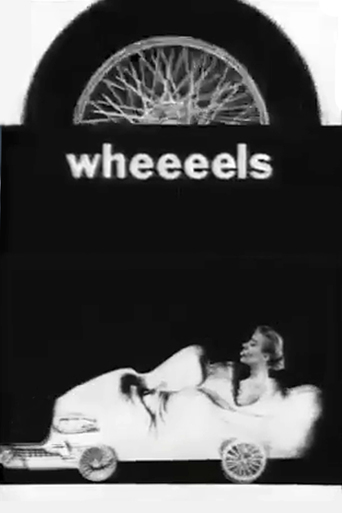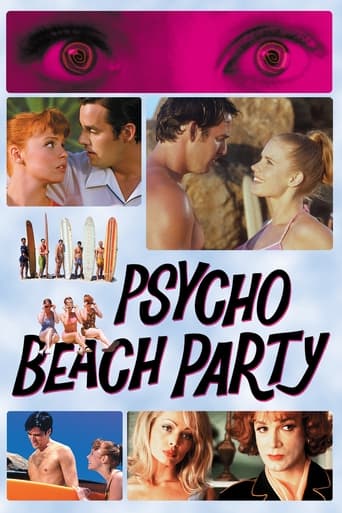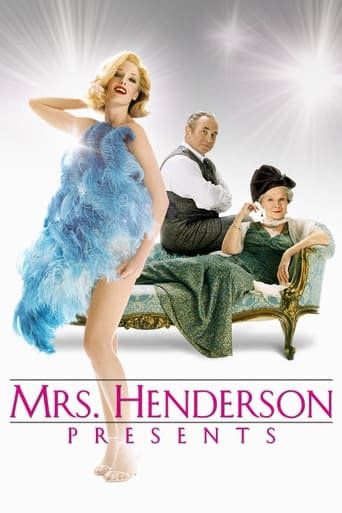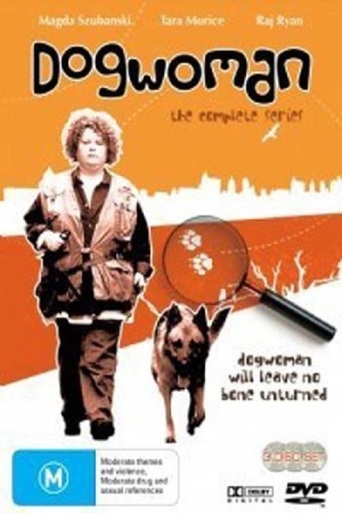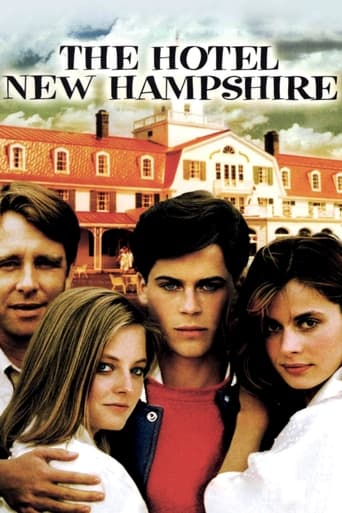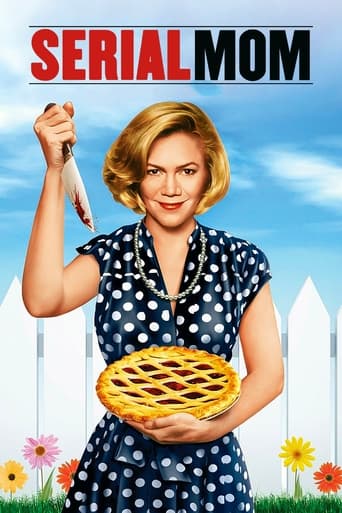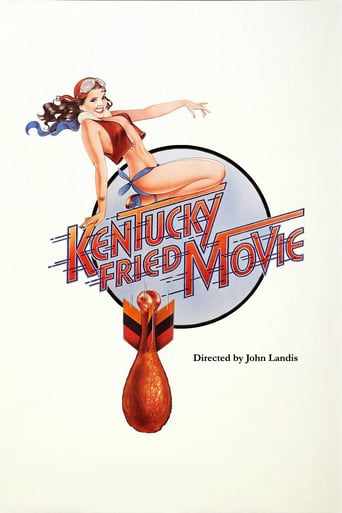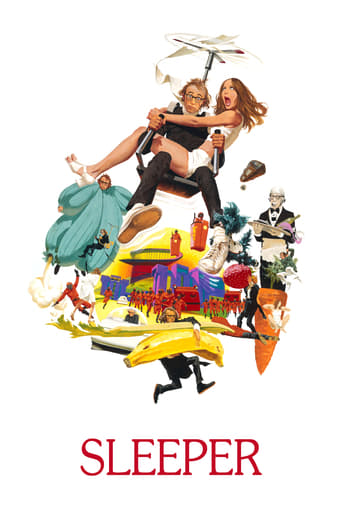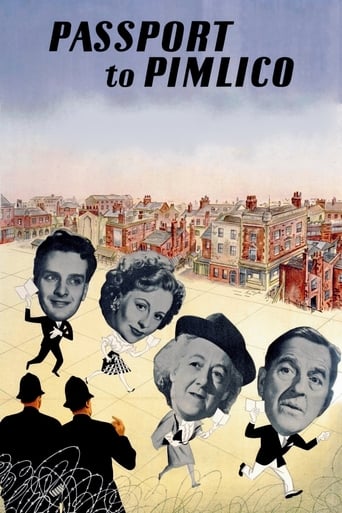
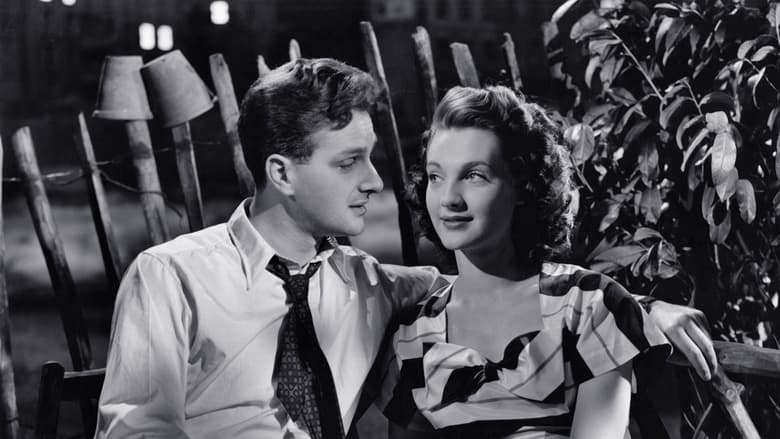
Passport to Pimlico (1949)
When an unexploded WWII bomb is accidentally detonated in Pimlico, it reveals a treasure trove and documents proving that the region is in fact part of Burgundy, France and thus foreign territory. The British government attempts to regain control by setting up border controls and cutting off services to the area.
Watch Trailer
Cast


Similar titles
Reviews
Generally well-regarded as an Ealing classic, PASSPORT TO PIMLICO is an acceptable comedy by modern standards, although it does feel noticeably dated and rather tame in its wit. The simple storyline is the best part of it: an excavation uncovers some old historical documents that 'prove' that Pimlico isn't actually part of the British Isles at all, so it becomes a micro state.While the set-up is a decent one, the rest of the film seems somewhat muddled and unfocused with the humour in absence for the most part. It's fun to see Ealing regulars like Stanley Holloway going through the paces, but otherwise this is merely a string of set-pieces. The climactic scenes of crowd feeding are good fun but otherwise this is a film that lacks the biting wit of modern political satires.One of the most fun parts of the film is seeing Naunton Wayne and Basil Radford, those two delightful cricket-loving gentlemen from THE LADY VANISHES, teaming up again for some double-act work. Keen eyes will spot Charles Hawtrey a decade or so before CARRY ON made him big.
"Welcome to Pimlico, a suburb of London where an unexploded bomb from World War II accidentally explodes. The aftermath reveals buried treasure and ancient documents that prove the region to be part of the French province of Burgundy, and consequently foreign territory. An un-amused British Government tries to regain control by creating border checkpoints and cutting off essential services. However, they haven't reckoned with the resolve of the 'Burgundians' who are determined to fight for their newly found independence," according to the folks at synopsis central...Betty Warren (as Connie) explains, "We always were English and we'll always be English, and it's just because we are English that we're sticking up for our right to be Burgundians!" This is the kind of humor prevalent in T.E.B. Clarke's witty script. British manners or lack thereof are quite nicely captured, but a closer inspection reveals fun poked at imperialism and classed society in general. The story was supposedly based on an actual Canadian incident; the notion is also evident in United States "Reservations" declared for Native Americans and the partitioning of Berlin.******** Passport to Pimlico (4/26/49) Henry Cornelius ~ Stanley Holloway, Hermione Baddeley, Margaret Rutherford, Paul Dupuis
One of Ealing's most fondly remembered comedies and for good reason; it's another one of their "little man stands up to the establishment" films, this time with the people of Pimlico sticking by their rights to be independent from Whitehall. There are some problems with the set-up - most notably with the fact that many of the problems the Pimlico citizens get into are their own fault by deliberately spiting the British government (ridiculing the police a few minutes before demanding they have police protection is a good case in point) - but overall the film gets by with its charm and almost fantastical quaintness. The satirical edge has been blunted by the passing years but for a film over 55 years old it still stands up today rather well. A glimpse into another world, really, where everybody in the district knows each other and life goes on amongst glimpses of bombed out buildings following the Blitz (for more of this sort of thing, see the earlier "Hue and Cry").The characters are an amiable lot and Stanley Holloway is a likable lead, embodying the Ealing Comedy spirit very well. Watch out also for a rather depressed pre-Carry On Charles Hawtrey, wandering in and out of the story at regular intervals. However, the absolutely wonderful Margaret Rutherford steals every one of her scenes, playing her eccentric, dotty old lady character as reliably and enjoyably as she ever did. I'm always amazed at how energetic her performances were. She was certainly one of British cinema's treasures."Pimlico", despite some story problems, remains a fun little picture that at 80 minutes doesn't out-stay its welcome, and probably gets better with repeated viewings. Well worth a go.
My former Cambridge contemporary Simon Heffer, today a writer and journalist, has put forward the theory that, just as British film-makers in the eighties were often critical of what they called "Thatcher's Britain", the Ealing comedies were intended as satires on "Attlee's Britain", the Britain which had come into being after the Labour victory in the 1945 general election. This theory was presumably not intended to apply to, say, "Kind Hearts and Coronets" (which is, if anything, a satire on the Edwardian upper classes) or to "The Ladykillers" or "The Lavender Hill Mob", both of which may contain some satire but are not political in nature. It can, however, be applied to most of the other films in the series, especially "Passport to Pimlico".Pimlico is, or at least was in the forties, a predominantly working-class district of London, set on the North Bank of the Thames about a mile from Victoria station. It is not quite correct to say, as has often been said, that the film is about Pimlico "declaring itself independent" of Britain. What happens is that an ancient charter comes to light proving that in the fifteenth century the area was ceded by King Edward IV to the Duchy of Burgundy. This means that, technically, Pimlico is an independent state, and has been for nearly five hundred years, irrespective of the wishes of its inhabitants. The government promise to pass a special Act of Parliament to rectify the anomaly, but until the Act receives the Royal Assent the area remains outside the United Kingdom and British laws do not apply.Because Pimlico is not subject to British law, the landlord of the local pub is free to open whatever hours he chooses and local shopkeepers can sell whatever they please to whomever they please, unhindered by the rationing laws. When other traders start moving into the area to sell their goods in the streets, the British authorities are horrified by what they regard as legalised black-marketeering and seal off the area to try and force the "Burgundians", as the people of Pimlico have renamed themselves, to surrender.Many of the Ealing comedies have as their central theme the idea of the little man taking on the system, either as an individual as happens in "The Man in the White Suit" or "The Lavender Hill Mob", or as part of a larger community as happens in "Whisky Galore" or "The Titfield Thunderbolt". The central theme of "Passport" is that of ordinary men and women taking on bureaucracy and government-imposed regulations which seemed to be an increasingly important feature of life in the Britain of the forties. The film's particular target is the rationing system. During the war the system had been accepted by most people as a necessary sacrifice in the fight against Nazism, but it became increasingly politically controversial when the government tried to retain it in peacetime. It was a major factor in the growing unpopularity of the Attlee administration which had been elected with a large majority in 1945, and organisations such as the British Housewives' League were set up to campaign for the abolition of rationing. I cannot agree with the reviewer who stated that the main targets of the film's satire were the "spivs" (black marketeers), who play a relatively minor part in the action, or the Housewives' League, who do not appear at all. The satire is very much targeted at the bureaucrats, who are portrayed either as having a "rules for rules' sake" mentality or a desire to pass the buck and avoid having to take any action at all.I suspect that if the film were to be made today it would have a different ending with Pimlico remaining independent as a British version of Monaco or San Marino. (Indeed, I suspect that today this concept would probably serve as the basis of a TV sitcom rather than a film). In 1949, however, four years after the end of the war, the film-makers were keen stress patriotism and British identity, so the film ends with Pimlico being reabsorbed into Britain. One of the best-known lines from the film is "We always were English and we always will be English and it's just because we ARE English that we're sticking up for our right to be Burgundians". There is a sharp contrast between the rather heartless attitude of officialdom with the common sense, tolerance and good humour of the Cockneys of Pimlico, all of which are presented as being quintessentially British characteristics.Most of the action takes place during a summer drought and sweltering heatwave, but in the last scene, after Pimlico has rejoined the UK the temperature drops and it starts to pour with rain. Global warming may have altered things slightly, but for many years part of being British was the ability to hold the belief, whatever statistics might say to the contrary, that Britain had an abnormally wet climate. The ability to make jokes about that climate was equally important.There is a good performance from Stanley Holloway as Arthur Pemberton, the grocer and small-time local politician who becomes the Prime Minister of free Pimlico, and an amusing cameo from Margaret Rutherford as a batty history professor. In the main, however, this is, appropriately enough for a film about a small community pulling together, an example of ensemble acting with no real star performances but with everyone making a contribution to an excellent film. It lacks the ill-will and rancour of many more recent satirical films, but its wit and satire are no less effective for all that. It remains one of the funniest satires on bureaucracy ever made and, with the possible exception of "Kind Hearts and Coronets" is my personal favourite among the Ealing comedies. 10/10


